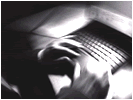

'Conscience'
Is No Cause for Judges to Flout
Laws
By
Howard J. Bashman
Sunday, June 1, 2003
May
a U.S. Court of Appeals judge
refuse to follow binding U.S.
Supreme Court precedent if the
judge believes that the precedent
is unconscionable?
"Yes" is how 9th Circuit Judge
Harry Pregerson recently answered
that question. Putting aside whether
Pregerson deserves to be respected
or pilloried for his personal
act of conscience, such willful
judicial disobedience of a higher
court's authority has no place
in our judicial system.
In March 2003, the U.S. Supreme
Court ruled that California's
three-strikes law, which requires
a sentence of 25 years to life
for certain repeat criminal offenders,
did not violate the 8th Amendment's
prohibition against cruel and
unusual punishment. A companion
ruling issued the same day prohibited
federal courts, on habeas corpus
review, from setting aside as
unconstitutionally excessive three-strikes
sentences that California's state
court system had imposed.
On May 19, 2003, a three-judge
panel of the U.S. 9th Circuit
Court of Appeals began disposing
of a backlog of three-strikes
appeals from federal trial courts
in California. The U.S. Supreme
Court's decisions issued in March
dictated the outcome: No matter
how draconian the sentences of
25 years to life might appear
when the third strike was a petty
theft offense, lower federal courts
were powerless to grant relief
under the 8th Amendment.
The 9th Circuit panel assigned
to rule on the backlog of cases
consisted of judges Harry Pregerson,
Stephen Reinhardt and Susan P.
Graber. The 9th Circuit in each
case properly rejected the prisoner's
challenge to the three-strikes
sentence.
But neither Pregerson nor Reinhardt
was pleased. In each instance,
Reinhardt issued a concurring
opinion stating, "I concur only
under compulsion of the Supreme
Court decision I believe the sentence
is both unconscionable and unconstitutional."
Pregerson, taking his displeasure
one step further, refused to join
in the rulings, writing instead:
"In good conscience, I can't vote
to go along with the sentence
imposed in this case."
The U.S. Supreme Court sits atop
this nation's hierarchical system
of justice. Once the Supreme Court
decides a question of constitutional
law, judges serving on lower courts
must apply the Supreme Court's
ruling, whether they agree with
it or not.
A federal judge whose conscience
prevents him or her from applying
the law faithfully should, at
a minimum, refuse to participate
in deciding those cases in which
the impediment arises. For if
one judge can elevate his conscience
above the law, so can others,
and soon we will have a system
where judges at every level are
free to decide cases based on
personal predilection rather than
binding judicial precedent and
the texts of constitutions and
statutes.
Of course, a party that refuses
to obey a court's ruling for reasons
of conscience is likely to face
punishment for contempt of court.
Judges, no less, are expected
to follow the law because that
is what the judicial system demands
of all participants.
Although no harm appears yet to
have come from Pregerson's act
of conscience, one easily can
conceive of an act of judicial
conscience-following that might
cause great harm to the rights
of a litigant. For instance, the
nation is sharply divided between
those who believe that abortion
should be legal and those who
believe it should not. Because
the U.S. Constitution does not
speak directly to the matter,
a lower court judge reasonably
could conclude that the U.S. Supreme
Court erred in ruling that the
Constitution protects a woman's
right to have an abortion.
Assume that a hypothetical judge
decides, as an act of conscience,
that he will refuse to invalidate
any law prohibiting abortion,
even when such a law runs afoul
of U.S. Supreme Court precedent.
Every day that an abortion is
unlawfully delayed by the judge's
refusal to follow precedent would
cause the woman to be one day
closer to having a viable fetus.
Such judicial insubordination
could, through delay alone, deny
the right to abortion that the
U.S. Supreme Court has recognized.
Judicial insubordination is not
a liberal or conservative issue,
and it is equally intolerable
in any of its possible manifestations.
Judges who willfully refuse to
follow the binding precedent of
higher courts do neither themselves
nor the judicial system credit
by following their conscience
rather than the law.
Judges should not participate
in deciding cases where their
personal views prevent them from
applying the law properly, and
judges who do not recognize this
truth call into question their
very fitness to serve in the judiciary.
© 2003 Los
Angeles Times. This essay first
appeared on the op-ed page of
The Los Angeles Times on Sunday,
June 1, 2003.
Back